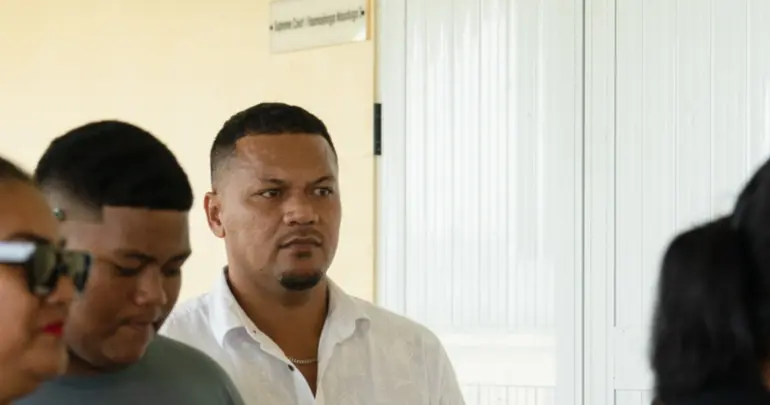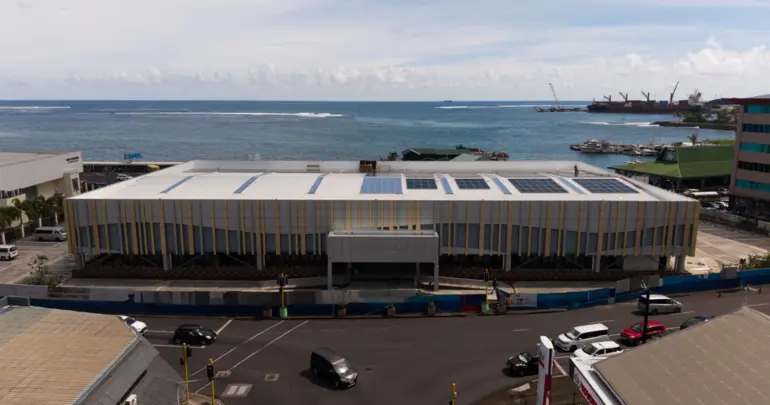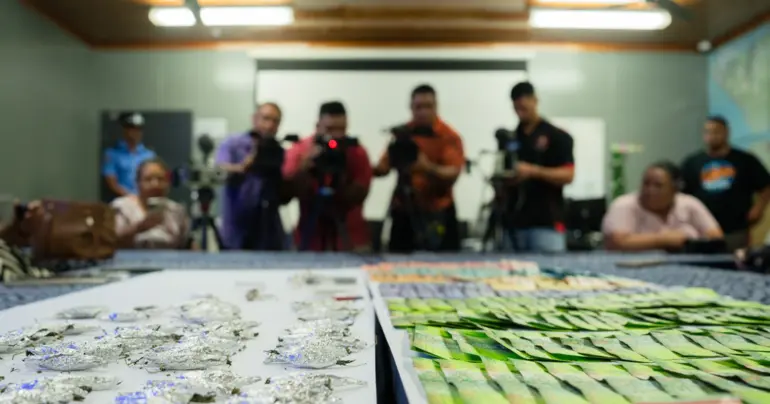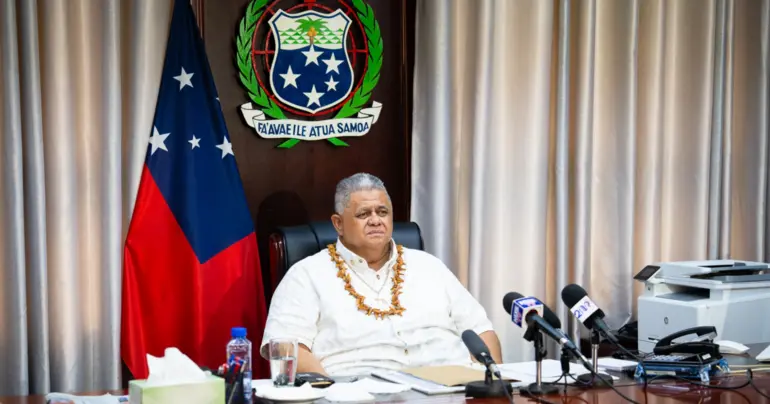Diabetes donation en route to Samoa
 By Sapeer Mayron
•
29 January 2020, 8:55AM
By Sapeer Mayron
•
29 January 2020, 8:55AM
Samoa’s diabetes programme will receive 20,000 glucose test strips and four glucose meters from an Australian non-profit, a donation which can provide potentially lifesaving preventative care for thousands of people a year.
The test strips allow patients to quickly test if their blood sugar levels are within a healthy range. The meters provide a precise reading of blood glucose levels. The two can be used in conjunction to help people living with diabetes to manage their conditions.
The donation, from the Insulin for Life non-profit is expected to arrive this weekend. The materials came from a pharmaceutical company, Trivida, which sells the meters for AU$60 and the strips for AU$1 each, amounting to an equivalent in-kind donation of tala $35,875.
Insulin for Life Founding President Ron Raab said, if used properly, the strips and meters could prevent complications during pregnancy and provide regular health checks for diabetics, which would otherwise be too expensive,
The meters are intended for use in the health sector for screening and testing rather than for patients to use in their home, Mr. Raab said.
In the 25 years to 2013 the incidence of type 2 diabetes in Samoa among men grew from less than 1.5 per cent of the population to nearly 20 per cent, according to a study published in the journal Diabetic Medicine; the rate of incidence among women grew at a similar rate.
“Diabetes is at epidemic levels in most Pacific Island nations, with preventable complications including blindness, kidney disease, amputations, heart disease, stroke and others. Blood glucose levels need to be monitored often on an ongoing basis to help ensure optimal diabetes control,” Mr. Raab said.
“The donated test strips and meters can be used for example in diabetes monitoring, and helping detect new cases, and in pregnancy, where the health of the baby is directly affected by high blood glucose levels. By helping improve blood glucose control the supplies can help prevent abnormalities in both the baby and the mother.
“They are really very valuable and lifesaving if used properly, and if they [the doctors] know what they are doing with them.”
The donation was sent to Samoa last week. A similar alongside will be shipped to Tonga. Transport and other costs have been paid for by the Embassy of Israel in New Zealand.
To ensure the donation arrives where it is needed, Israel's Ambassador Dr. Itzhak Gerberg coordinated with the Director General of Health, Leausa Dr. Take Naseri, who will ensure the agency's diabetes programme reports back to the donors.
"Feedback helps acquire more donations, as well as determine which Pacific Island has a need for the strips and meters,” Mr. Raab said.
Trivida, which donated the strips and sold the meters to Insulin for Life, is packing up its Australian branch, and would have destroyed its leftover stock to prevent it reaching the black market. Mr. Raab’s organisation is dedicated to preventing that pharmaceutical waste by redirecting the supply where it is needed.
“They are useful in a pregnancy clinic or any hospital setting, or in a survey. I would say there are at least 10,000 undiagnosed diabetics over there (in Samoa)," he said.
Mr. Raab, who was diagnosed with diabetes as a child, said the story of diabetes in the Pacific is saddening, as the disease could be prevented for very little money with more education and changes to diet and lifestyle.
Insulin for Life has been donating blood glucose meters and test strips across the Pacific for around 15 years. Israeli Embassies in Canberra and Wellington have frequently covered shipment costs.
The Pacific Islands have historically had warm relations with Israel so the funding relationship was a natural fit, Mr. Raab said.
He founded Insulin for Life in nearly 30 years ago and in 2008 was honoured with the Order of Australia for his work.
The organisation has made four other donations to Samoa and last donated strips and meters in 2016.
His early work in the Pacific involved surveying rates of diabetes in the region, a body of research that revealed the Pacific region leads the world in rates of the disease.
In Nauru, for example, 40 per cent of the population suffers from diabetes. Its neighbours are, Mr. Raab said, “not far behind."
“Basically it boils down to eating the wrong food, eating food with high amounts of sugar, and the body can’t deal with such volumes," he said.
In Australia, the organisation collects unused and unexpired insulin to redistribute it where needed. But in the Pacific tools for managing the disease, not insulin, are more needed, he said.
Tags
 By Sapeer Mayron
•
29 January 2020, 8:55AM
By Sapeer Mayron
•
29 January 2020, 8:55AM











